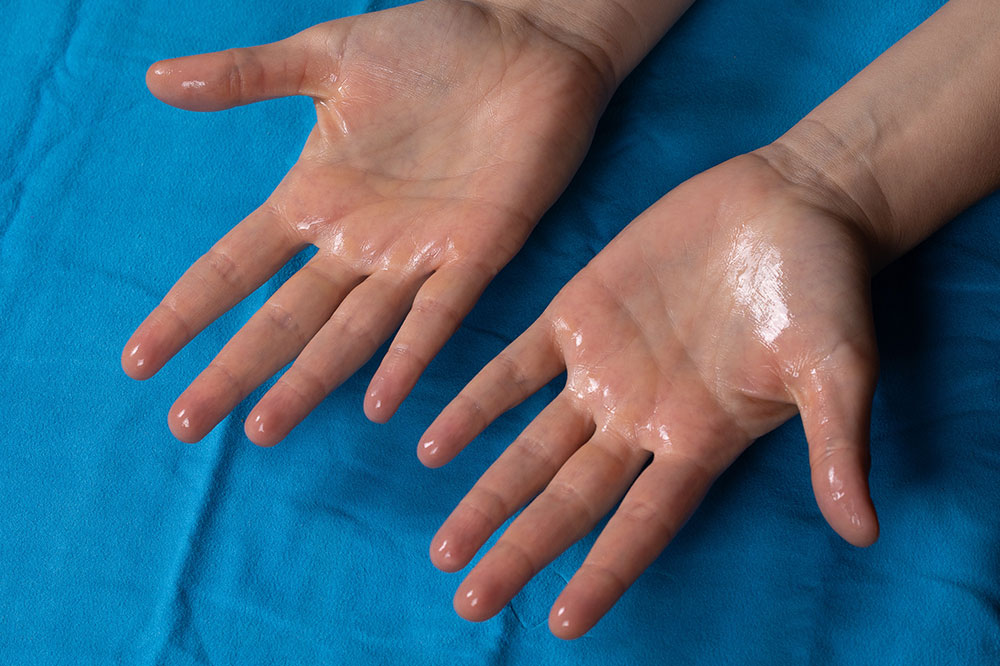5 effective tips to manage hyperhidrosis

Hyperhidrosis is a medical condition that impacts the quality of the everyday life of an individual. Excessive sweating can lead those affected to feel embarrassed, sad, anxious, and angry. To combat these emotional and mental feelings, one can bring some effective changes in everyday life. Mentioned below are some of the lifestyle tips that you can incorporate into your daily routine to cope with hyperhidrosis. Let’s have a look at some.
Exercise
Working out is a great way to help reduce stress and maintain physical health. People with hyperhidrosis should not feel embarrassed while working out, as it is normal for them to sweat during intense physical workouts. Also, regular exercise will help you keep your body in shape and help reduce sweat in normal situations.
Wear light and breathable clothing
Out of the many lifestyle tips for hyperhidrosis, this one is about paying attention to what you wear. Natural fibers like cotton and linen will help keep sweat to a minimum. Thick fabrics like flannel can trap sweat which can worsen your sweating. People with hyperhidrosis should wear light and breathable fabrics, which can reduce the body temperature, and in turn, stop sweat.
Stay hydrated
It is important for people with hyperhidrosis to maintain an adequate level of hydration. Sweating leads to the loss of electrolytes from your body. It is generally recommended to drink eight glasses of water a day; however, people with hyperhidrosis may need to drink more.
Diet
A change in diet can help reduce sweat levels. Certain foods and drinks can trigger sweat production. Eliminating or limiting them from your diet can help in sweat reduction. Limit the consumption of spicy food, highly processed foods, caffeine, and alcohol, which are some foods that can cause excessive sweating.
Keep your feet dry
You should wear sandals that allow easy air circulation in your feet, preventing them from sweating. Also, you need to wear shoes made from natural materials such as leather and other genuine sweat-proof material. Change your shoes and socks frequently to prevent feet dampness, preventing bad odor and sweat.
The tips mentioned above can help better manage hyperhidrosis, but it is important to be aware of antiperspirant deodorants to help reduce sweating. Doctors suggest that the best time to apply is at night as the body absorbs more antiperspirant into the skin. They contain physical sweat blockers such as aluminum chloride that blocks the sweat glands.



